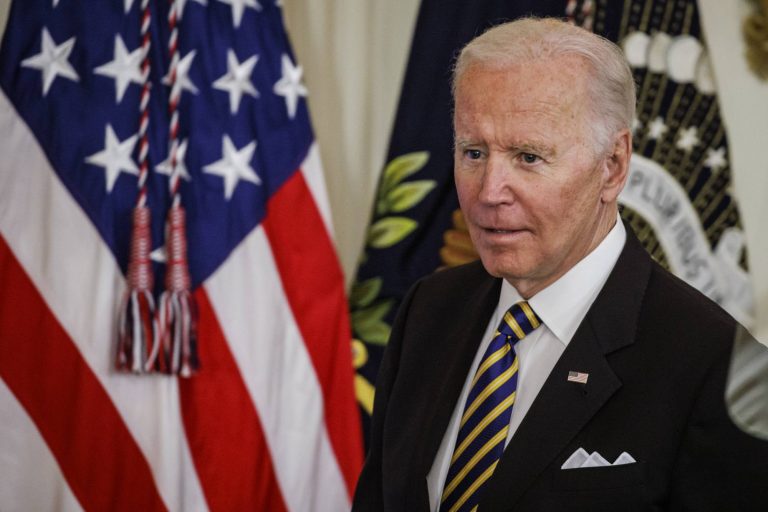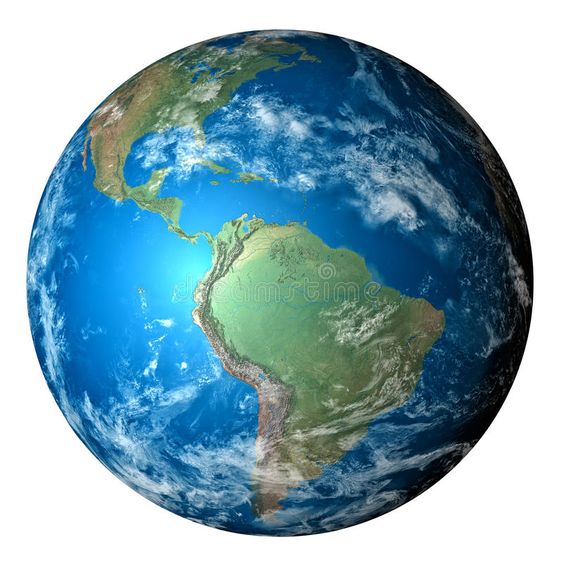
President Biden will embark on a trip to Asia to attend a US-hosted ASEAN Summit on 12-13 May. He is also scheduled to visit South Korea and Japan on 20-24 May.
By Tom Arms
President Joe Biden is attempting a pivot back to Asia. After months of being forced by Ukraine to re-focus on Europe, the American president is organizing an Asian month and his first presidential trip to the region.
It starts next week with a US-hosted summit of ASEAN (Association of Southeast Asian Nations) leaders on 12-13 May and ends with visits to South Korea and Japan on 20-24 May and finally, a “Quad” summit in Tokyo on 24 May.
The trips to Seoul and Tokyo are an opportunity for President Biden to hold his first face-to-face meetings with Asia’s new diplomatic kids on the block—South Korean President Yoon Suk-Yeol and Japanese Prime Minister Kishida Fumio.
The president wanted to head to Asia much sooner. Biden was one of the chief architects of Barack Obama’s “Asia Pivot” and the White House spokesperson said that the trip demonstrates the administration’s “rock-solid commitment to a free and open Indo-Pacific.” Unfortunately for the pivot, Ukraine interfered.
South Korea’s President Yoon will be only 14 days into the job when Biden’s plane touches down, having been inaugurated on 10 May. And if he sticks to his campaign pledges, the new South Korean leader’s foreign policy will be a major departure from his predecessor Moon Jae-in.
President Moon took a decidedly conciliatory line in the face of a belligerent Kim Jong-un in North Korea. He was also careful to tread a wary path in relations with Beijing, mainly because China constitutes 25.8 percent of Seoul’s trade.
Yoon Suk-Yeol has declared that his top foreign policy priority is South Korea’s military pact with the US and that a tough military stance is required. He has called for “aggressive deterrence” which includes more military exercises with the 28,500 US troops based in South Korea and the deployment of additional US-made Terminal High Altitude Air Defense (THAAD) anti-missile launchers. Yoon has also gone on record to say he would launch a pre-emptive strike against North Korea if there were clear signs that Pyongyang was planning an attack.
Finally, President Yoon wants to join the anti-Chinese Quad alliance of Japan, India, the US and Australia. In this ambition, however, he may be thwarted by Japan. Relations between the two countries are strained at the best of times because of historical enmity. Despite their geographic proximity, Tokyo represents less than five percent of South Korea’s trade. On top of that, Japan is keen to retain its position as the most important northeast Asian member of the Quad.
The US and Australia, however, want to extend the new alliance to a Quad-plus. South Korea’s strategic position plus its large well-trained military makes it a potential plum addition. So Canberra and Washington are planning to smooth Japanese feathers and balance the alliance by also inviting Vietnam and New Zealand to join their anti-Chinese club.
Japan’s main concerns are the South and East China seas, the Spratly Islands and Taiwan. The new Japanese Prime Minister, Kishida Fumio, had a reputation as a dove-ish foreign minister under the long premiership Shinzo Abe. But he has become more assertive since assuming the top job. For a start, Fumio has lifted the long-standing cap of one percent of GDP on Japanese military spending. Secondly, following a virtual summit with President Biden, the two men agreed to consider changing their position on Taiwan from “strategic ambiguity” to “strategic clarity.” So far, however, both men have avoided clarifying exactly what is meant by “strategic clarity.”
Australia may have problems attending the Quad Tokyo summit planned for 24 May. Its federal elections will be held on 21 May. After the 2019 vote it took 11 days of negotiations to agree the new government. One of Canberra’s main concerns is Chinese attempts to establish a military presence in their South Pacific backyard following a recent agreement between the Solomon Islands and Beijing to allow Chinese warships to dock on the islands.
Australia, Japan and South Korea are all keen supporters of NATO assistance for Ukraine’s fight against Vladimir Putin. India is the odd one out. Its history of close relations with Moscow—especially as regards military equipment—has pushed it into a position somewhere between neutral and pro-Russian. This has annoyed the other members of the Quad—especially Washington—who is also concerned about Narendra Modi’s increasingly autocratic tendencies.
Finally, there is the Quad’s target—China. US Secretary of State Antony Blinken recently told the Senate Foreign Relations Committee that the US had scored a diplomatic victory in persuading Beijing not to provide military assistance to Putin in his fight with Ukraine. That was an overstatement. The Chinese are masters of Realpolitik. President Xi Jinping was less influenced by threats from Washington and Brussels then he was at the prospect of the consequences of being committed to the losing side.
The Chinese leader is still carefully watching Ukraine in case—against all the odds—the situation shifts to Putin’s favor. He is also watching Biden’s attempt to re-establish America’s Asia pivot.
 World Review
World Review
- French politics have been thrown into confusion with an unprecedented “Stop Macron” alliance of the left for next month’s parliamentary elections. The concordat has been forged by France’s elder statesman of the Left, Jean-luc Melenchon who just missed being included in last month’s presidential run-offs. He has persuaded the Communists, Greens and Socialists to join his France Insoumise (LFI, France Unbowed), to stop Macron’s pro-business, pro-EU legislative agenda. But Melenchon’s pre-election coalition does not spell a foregone victorious conclusion for the French Left. The latest opinion polls show a three-way split between the left-wing alliance, Macron’s La Republique en Marche and the right of center conservatives and Marine Le Pen’s far-right National Rally. The Socialists and Melenchon make strange bedfellows with opposing views on the EU and NATO membership. They do, however, agree on the bread and butter issues of lowering the retirement age, raising the minimum age and capping prices on essential products. On the other end of the political spectrum, it is uncertain whether the Republicans will support Macron or Le Pen in the new National Assembly. The political map is further complicated by France’s two-round electoral assembly which appears to give Macron’s party a slight advantage in the run-off vote on 19 June. The only thing that is clear at the moment is that the National Assembly elections are making life complicated for the newly re-elected President Emmanuel Macron and the results may make his second term very difficult.
- Good news and bad news for President Vladimir Putin and his Ukraine war. First the good news. His decision to focus on bombing Ukrainian factories, especially those producing war materiel, is having an effect. The Ukrainians are starting to run short of weapons and the West is not—at the moment—moving fast enough to replace them. And when they do, they will find it difficult to transport the equipment to the front lines because Russian missiles are also targeting the railway network. Now for the bad news, there are signs that public support is waning. In fact, it may never have been as strong as originally reported. “Independent” Russian pollsters originally reported that 80 percent of Russians supported Putin’s War. It now seems that more than half of those canvassed refused to give an opinion because of fear of repercussions. Opposition is expected to grow exponentially if Putin declares martial law and announces a general mobilization to replace an estimated 20,000 dead Russian soldiers. Included in the body count are 12 generals. Finally, the EU appears to be taking concrete steps to wean itself off Russian fossil fuels, sales of which are financing the war. A proposal before the Europeans calls for a phasing out of crude Russian oil imports over the next six months, refined products by the end of the year and two-thirds reduction in gas imports by the end of the year. The import ban, however, is not a foregone conclusion. Hungary has threatened to veto it and the Czech and Slovak governments want the transition period extended to three years.
- Abortion is now a major issue for the mid-term US congressional elections. The leaked Supreme Court decision to overturn Roe v. Wade has guaranteed it. Twenty-six of America’s 50 states are poised to introduce legislation to ban abortions, although legal hurdles means that it will take six months to two years for the bans to take effect and will vary considerably from state to state. The only way that abortion can be retained across America is for pro-choice legislation to be passed by Congress. At the moment this is impossible because it requires a minimum of 60 pro-abortion votes in the Senate. The upper house is divided 50/50 between Republicans and Democrats with the Republicans solidly opposed to abortion. They are not, however, representative of the population at large. Opinion polls have consistently reported that 70 percent of Americans think that the decision about abortion should be left to the woman and her doctor. The anti-abortion lobby is spearheaded by the evangelical right which has grown in influence as a bloc vote and major contributor to Republican Party funds. The pro-choice lobby has been less active because its position was protected by Roe v. Wade.
- The Belarussian rat—Alexander– Lukashenko is making noises about deserting the Russian warship, or, at the very least, he is looking around for a lifeboat. Belarus is Russia’s only ally in its war with Ukraine. Thousands of Russian troops attacked northern Ukraine from Belarus. The troops that captured Chernobyl came through Belarus. The Belarussians have provided logistical support, fuelling stations and bases for air attacks. There have been reports that Russia is recruiting Belarussian mercenaries to fight in Ukraine. But this week, President Lukashenko told a reporter from Associated Press that his friend Vladimir Putin has failed to achieve his goals and that “this operation is dragging on”–words that indicate that the Belarussian dictator is worried about the outcome of the war. Lukashenko supports Putin’s war—in fact, he has become a virtual Russian puppet—because he owes the Russian leader for his political survival. Lukashenko has been struggling against demonstrators and Western sanctions ever since rigged elections in August 2020. Putin has stood by him by helping Lukashenko to circumvent sanctions, providing political support and selling him Russian gas and oil at discounted prices. It should have been enough to insure the Belarussian dictator’s full support for the Ukraine “operations.” But now the war is being seen as yet another stone threatening to topple Lukashenko.
_________________
 Tom Arms is foreign editor of Liberal Democratic Voice and the author of the recently published book “America Made in Britain.”
Tom Arms is foreign editor of Liberal Democratic Voice and the author of the recently published book “America Made in Britain.”